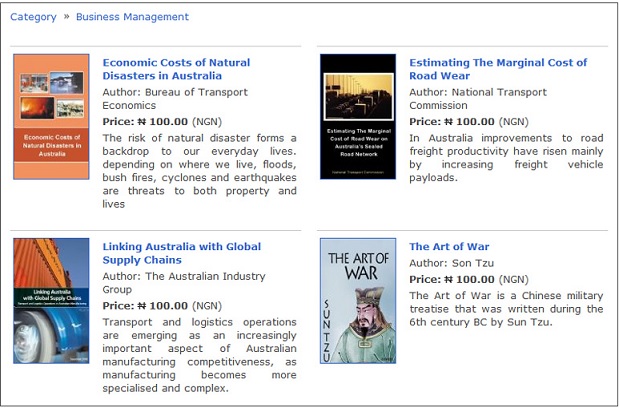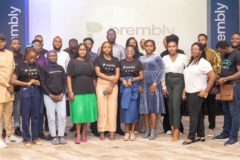If you’ve ever tried carrying out online academic research on Nigerian topics, you’d know the whole process is narrowly short of a wild goose chase. There isn’t just enough accessible info out there and it’s not necessarily because no one is working on researchable material. This is the exact problem Owai and Onome Owai look to address with Research Class
The core idea behind Research Class is to bridge the gap between academics and researchers. Owners of content (primarily students and lecturers from tertiary institutions) can make accessible their theses, notes, journals, just about anything academic, to an interested and paying public. This brings to mind a similar international service like Scribd. Scribd users pay a monthly subscription fee for all-out access to Scribd’s teeming repository of books and articles. Research Class’s business model is quite different though.
On Research Class, users only pay for what they access. Purchases are made on a prepaid basis so the user is expected to credit his/her account in advance (all Nigerian debit cards are accepted). Once their accounts are credited, users can choose between downloading for offline use or the cheaper option of accessing the content online, on a “pay as you read” basis (similar to, but not exact implementation of, Total Boox model). Owai Owai says as little as N10 can get you a whole book chapter worth of online reading.
Of course the digital availability of these materials raises copyright concerns. To protect the rights of the author, all content is DRM-protected and can only be accessed after installing the CopySafe PDF Reader on your PC (no Macs or mobile devices, sorry). This prevents unauthorized access and redistribution; only registered and paying users can view online content and only offline purchases can only be printed, with very limited options.
If you own researchable content, the process of getting your works live on Research Class is pretty straightforward. First you request to be upgraded to “agent” status (only registered users are eligible to request). This involves confirming payment details by filling an agent form. Next you submit your documents in PDF, Word or Excel formats, fingers crossed while the Research Class editors scrutinize. Once the editors are satisfied, they convert the document to DRM-protected formats and delete the original. Owai says Research Class do not lay any claims to your copyrights.
Pricing for online reading is unified across board while content owners are allowed to determine offline download pricing. Royalties are paid monthly – directly to the agent’s bank account – as long as their earnings exceed a predetermined minimum payout threshold. Payments are calculated based on the cumulative time users spent reading the documents online and the number of offline downloads. This activity can be monitored daily by the agent from his control panel.
I think the Research Class concept is commendable. But it looks like things aren’t catching on just yet; there doesn’t appear to be any substantial uploading activity since its official launch in July of 2013. Perhaps there’s a lacking awareness within tertiary institution circles. Or maybe it’s just the Nigerian tendency to hoard information, who knows. I did spot a few academic research content here and there but, a lot of the other stuff looks to me like dummy content, including public domain books like Son Tzu’s “Art of War” which, by the way, I already paid to access online, even though I can get it for free, and legally so.
Either way, whether you’re a keen researcher or (especially) an academic, you should give Research Class a try.
Photo Credit: Marcus Hansson via Compfight cc






















